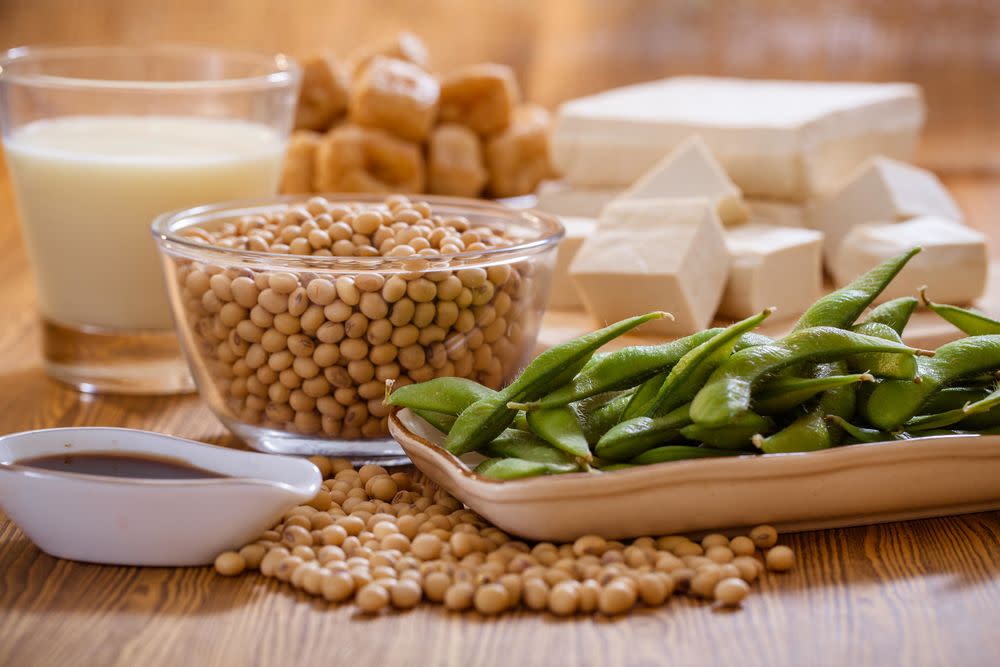Is Soy Safe During Pregnancy?

The relationship between science and soy has been a tumultuous one. It seems like as soon as research suggests that eating soy can help prevent disease, a newer study refutes its findings. And because soy contains isoflavones (which are phytoestrogens, or chemicals that mimic the hormone estrogen in the body), some experts warn that consuming too much of it can harm your health and even negatively affect your baby's development during pregnancy.
The beleaguered legume is a great low-fat source of protein, however, which you need to grow a healthy baby. Getting enough protein during a vegetarian pregnancy in particular is challenging, so many women look to soy to boost their intake. "Besides high-quality protein, soy also provides folate, iron, calcium, zinc and trace minerals," says Elizabeth Somer, M.A., R.D., Salem, Ore.-based author of Eat Your Way to Happiness (Harlequin). "Soybeans are also high in fiber, and they're a source of omega-3 fatty acids."
Faced with conflicting information, many expectant moms aren't sure how much soy is safe. To help you, we asked top health experts for the latest on soy. Here are the facts.
The Good and the Bad
Soybeans contain phytic acid, a natural plant substance that binds to minerals. "Phytic acid can block the uptake of some heavy metals (such as mercury, lead, cadmium and uranium), which is great, but it can also block the absorption of essential minerals such as niacin, calcium, magnesium, iron and zinc, which are critical for the growth and development of the fetus," says Brandon Horn, Ph.D., J.D., L.Ac., a professor of reproductive medicine at Yo-San University of Traditional Chinese Medicine in Los Angeles and an adjunct professor at the University of California, Los Angeles, David Geffen School of Medicine.
Another soy perk gone sour: the legume's ability to lower cholesterol levels is a benefit when you're not expecting. But right now your body needs cholesterol to make progesterone, estrogen and vitamin D, says Horn.
RELATED: Vegetarian Pregnancy 101: How to Get the Right Nutrients
Additionally, you might have heard that eating soy while expecting may lead to early puberty, irregular menstrual cycles and fertility problems in girls and an increased incidence of urological birth defects in boys. Animal studies have linked soy to such outcomes, and research is beginning to surface that soy could have the same effects on humans.
Moderation Is Key
"During pregnancy, one to two servings of soy daily is fine," says Somer, who notes that a serving is half a cup of tofu or a cup of soymilk. Some experts recommend fermented soy products, such as tempeh and miso, rather than soymilk and tofu. "Fermentation helps neutralize the phytic acid in soy, making the nutrients easier for the body to absorb," says Jonny Bowden, Ph.D., C.N.S., co-author of The 100 Healthiest Foods to Eat During Pregnancy (Fair Winds Press).
No matter which form of soy you choose, eat whole foods, not processed snacks. Says Bowden, "Many of the soy foods that are marketed as healthy are really just junk foods.".
—Amy Paturel, M.S., M.P.H., is a health writer in Temecula, Calif.

